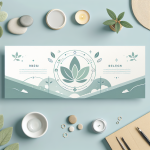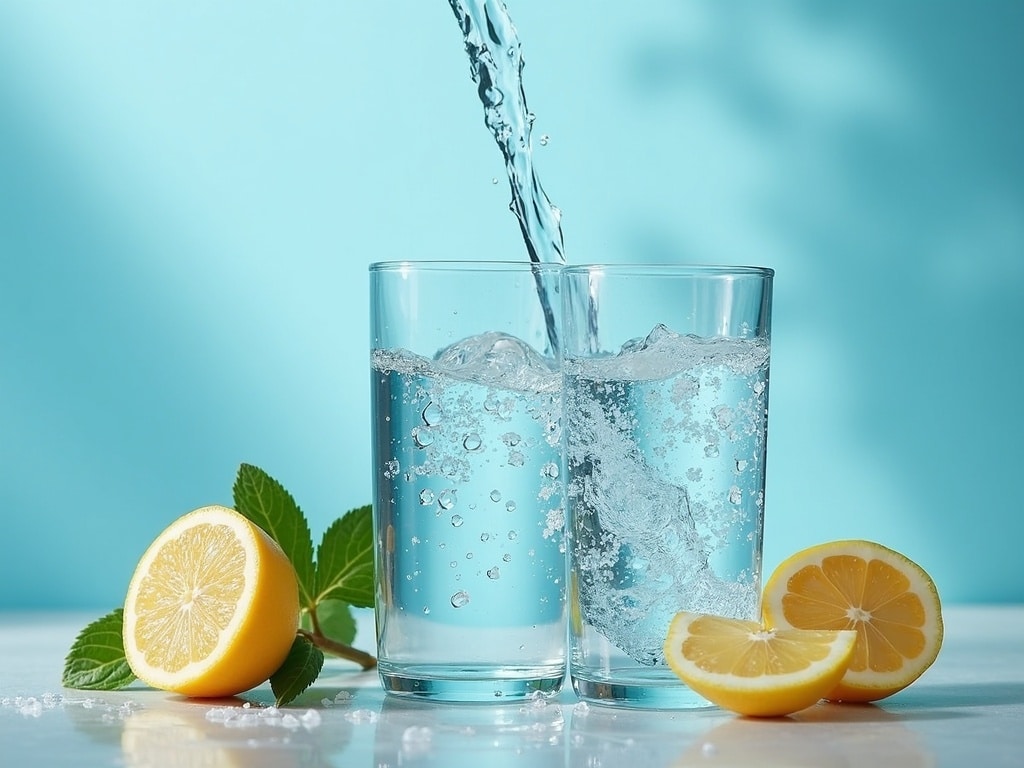How Much Water Should I Drink Daily? Unlocking Hydration for Radiant Skin
Ever notice how your skin glows after a day of diligent water intake? Or conversely, how dull and tired it looks when you've been skimping on the H2O? Hydration is the silent hero of radiant skin, but figuring out exactly *how much water should I drink dailycan feel like navigating a murky pond. Fear not! We're diving deep into the science-backed answers, personalized tips, and delicious strategies to help you achieve optimal hydration and, yes, that coveted healthy glow.
The Water-Skin Connection: Why Hydration Matters
Before we get into the nitty-gritty of daily water intake, let's understand why hydration is so crucial for skin health. Think of your skin as a garden. Without regular watering, the plants (your skin cells) become dry, brittle, and less vibrant.
**Plump and Supple Skin:Water keeps skin cells plump, reducing the appearance of fine lines and wrinkles. Dehydrated skin looks saggy and emphasizes imperfections.
**Enhanced Elasticity:Adequate hydration supports collagen and elastin production, the proteins responsible for skin elasticity and firmness.
**Improved Complexion:Water helps flush out toxins and promotes blood circulation, leading to a clearer, brighter complexion.
**Reduced Dryness and Irritation:Dehydration exacerbates dry skin conditions like eczema and psoriasis. Proper hydration soothes and protects the skin barrier.
**Faster Healing:Hydrated skin heals faster from wounds, blemishes, and sun damage.
The 8 Glasses a Day Myth: Debunked!
You've probably heard the advice to drink eight glasses of water a day. While it's a good starting point, it's not a universal rule. The truth is, individual hydration needs vary significantly based on several factors.
Factors Influencing Your Daily Water Needs
So, if eight glasses isn't the magic number, what is? Consider these key influencers:
**Activity Level:Athletes and individuals engaged in strenuous activities lose more water through sweat and need to replenish accordingly. A vigorous workout might require an extra liter or more.
**Climate:Hot and humid environments increase perspiration, leading to greater fluid loss. People living in these climates need to drink more water than those in cooler regions.
**Diet:Some foods, like fruits and vegetables, have high water content and contribute to your daily intake. Conversely, salty or processed foods can promote dehydration.
**Overall Health:Certain medical conditions, such as kidney problems or heart failure, may require fluid restriction or, conversely, increased fluid intake. Consult with your doctor if you have any underlying health concerns.
**Age:Infants and young children are more susceptible to dehydration and require smaller, more frequent sips of water. Older adults may have a decreased sense of thirst and need to be reminded to drink regularly.
**Pregnancy and Breastfeeding:Pregnant and breastfeeding women have increased fluid needs to support both their own bodies and their babies.
Calculating Your Individual Daily Water Needs
While a precise calculation can be tricky, here are two practical approaches to estimate your daily water needs:
1. **The Weight-Based Method:A common recommendation is to drink half an ounce to one ounce of water for each pound of body weight. For example, if you weigh 150 pounds, aim for 75 to 150 ounces of water per day.
2. **The Listen to Your Body Approach:Pay attention to your thirst cues. Drink when you feel thirsty, and aim for pale yellow urine throughout the day. Dark yellow urine is a sign of dehydration.
Hydration Beyond Water: Delicious Alternatives
Staying hydrated doesn't mean chugging plain water all day. There are plenty of delicious and nutritious alternatives to keep things interesting:
**Infused Water:Add slices of fruits (lemon, cucumber, berries), herbs (mint, basil), or vegetables (ginger) to a pitcher of water for a refreshing and flavorful twist.
**Herbal Teas:Unsweetened herbal teas, like chamomile, peppermint, or rooibos, are a great way to stay hydrated and enjoy additional health benefits.
**Fruits and Vegetables:Watermelon, cucumber, strawberries, celery, and spinach are packed with water and essential nutrients.
**Coconut Water:A natural electrolyte drink that's perfect for post-workout recovery.
**Soups and Broths:Broth-based soups contribute to your fluid intake and provide valuable nutrients.

Dehydration: Recognizing the Warning Signs
It's easy to underestimate the effects of mild dehydration. Learn to recognize the early warning signs:
**Thirst:The most obvious sign, but don't wait until you're parched to drink.
**Dry Mouth and Throat:A feeling of dryness or stickiness in the mouth.
**Headache:Dehydration can trigger headaches and migraines.
**Fatigue:Feeling tired or sluggish, even after adequate sleep.
**Dizziness:Lightheadedness or dizziness, especially when standing up quickly.
**Dark Urine:Dark yellow or amber-colored urine.
**Constipation:Dehydration can lead to constipation due to reduced bowel lubrication.
**Muscle Cramps:Electrolyte imbalances caused by dehydration can contribute to muscle cramps.
**Dry Skin:Skin that lacks elasticity and feels dry to the touch.
Tips for Staying Hydrated Throughout the Day
Making hydration a habit requires a proactive approach. Here’s how to seamlessly integrate it into your daily routine:
**Start Your Day with Water:Drink a glass of water as soon as you wake up to rehydrate your body after sleep.
**Carry a Water Bottle:Keep a reusable water bottle with you at all times as a visual reminder to drink regularly.
**Set Reminders:Use your phone or a hydration app to set reminders to drink water throughout the day.
**Drink Before, During, and After Exercise:Replenish fluids lost through sweat during physical activity.
**Pair Water with Meals:Drink water before, during, and after meals to aid digestion and promote satiety.
**Make it Accessible:Keep water readily available at your desk, in your car, and in other frequently visited locations.
**Track Your Intake:Monitor your water intake to ensure you're meeting your daily goals.
**Hydrate Before You're Thirsty:Don't wait until you feel thirsty to drink water. Drink regularly throughout the day to prevent dehydration.
Hydration and Skin Conditions: Expert Insights
Want to hear an actual dermatologists' opinion? Many experts highlight the importance of hydration in managing and improving various skin conditions:
**Acne:While hydration isn't a direct cure for acne, it helps maintain a healthy skin barrier and reduces inflammation, potentially minimizing breakouts.
**Eczema:Staying hydrated can alleviate dry, itchy skin associated with eczema.
**Psoriasis:Proper hydration helps soothe and moisturize psoriatic skin, reducing scaling and discomfort.
**Rosacea:Hydration can minimize redness and irritation in rosacea-prone skin.
**Aging Skin:Adequate hydration plumps up the skin, reducing the appearance of fine lines and wrinkles.
Overhydration: Is Too Much Water Possible?
While dehydration is more common, it's also possible to overhydrate, though rare. Overhydration, also known as hyponatremia, occurs when the sodium levels in your blood become diluted due to excessive water intake. Symptoms can include nausea, headache, confusion, and, in severe cases, seizures or coma. Overhydration is more likely to occur in athletes who drink excessive amounts of water during endurance events or in individuals with certain medical conditions.
The Bottom Line: Personalized Hydration for Glowing Skin
So, *how much water should I drink daily*? The answer isn't a one-size-fits-all solution. It depends on your individual needs and lifestyle factors. By listening to your body, paying attention to thirst cues, and incorporating hydrating foods and beverages into your diet, you can achieve optimal hydration and unlock that radiant, healthy skin we all crave. Hydration is not just about quenching your thirst; it's an investment in your overall health and beauty. Cheers to a well-hydrated, glowing you!

